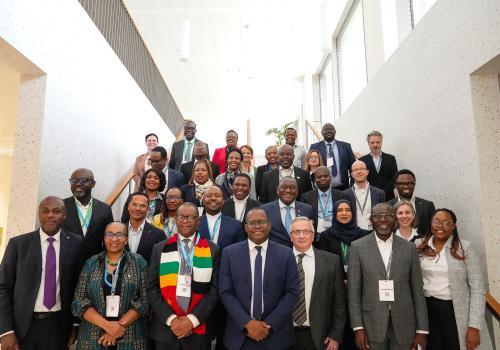The Southern African Development Community (SADC) has reaffirmed its commitment to improving access to essential medicines across the region. The commitment was made during a High-Level Dialogue held at the Global Health Campus in Geneva, Switzerland on the margins of the World Health Assembly. The event marked a pivotal step in advancing the implementation of the SADC Pooled Procurement Services (SPPS), bringing together senior officials from Member States and key global health partners.
Coordinated by the SADC Secretariat with support from Unitaid, the Global Fund, UNFPA, GIZ, through co-funding from the European Union, the dialogue focused on activating the SPPS as a regional mechanism to improve affordability, supply security, and equitable access to quality-assured health commodities.
Participants endorsed a phased approach to implementation, which includes information sharing and group contracting model. Immediate priorities include finalising the SPPS Charter, establishing a Steering Committee composed of national procurement leaders, and operationalising the eSPPS platform.
“This is not just a procurement reform, it is a commitment to health equity in our region,” said Honourable Dr. Douglas T. Mombeshora, the Minister of Health of Zimbabwe, who also chairs the Joint Committee of SADC Health Ministers. “SPPS gives us the tools to act collectively, and the time to act is now.”
SADC Member States shared experiences and challenges, particularly in navigating regulatory diversity and financing constraints. Member States such as Democratic Republic of Congo, Lesotho, Malawi, United Republic of Tanzania and Zimbabwe highlighted the urgency of securing essential medicines amid shifting donor landscapes and expressed readiness to pilot transactions under SPPS.
Partners reaffirmed their support to this important initiative. UNFPA encouraged eligible countries to leverage the UNFPA Supplies Match Fund for reproductive health commodities, including for qualifying procurements made through the pooled procurement mechanisms outlined in the SPPS business plan, while the Global Fund offered to share long-term procurement agreements as an interim measure. Unitaid emphasized the role of SPPS in creating viable markets for regional manufacturers and highlighted its forthcoming initiative to support local production.
Over the next 6 to 12 months, Member States and partners will work to operationalise early pooled procurements using a revised priority product list. This effort will be accompanied by policy alignment, governance setup, and continued technical assistance to ensure long-term sustainability.
SPPS represents a strategic shift toward regional solidarity and efficiency in health systems strengthening — one that SADC aims to activate in an accelerated manner.

